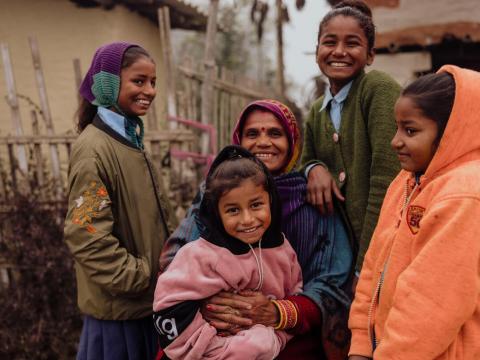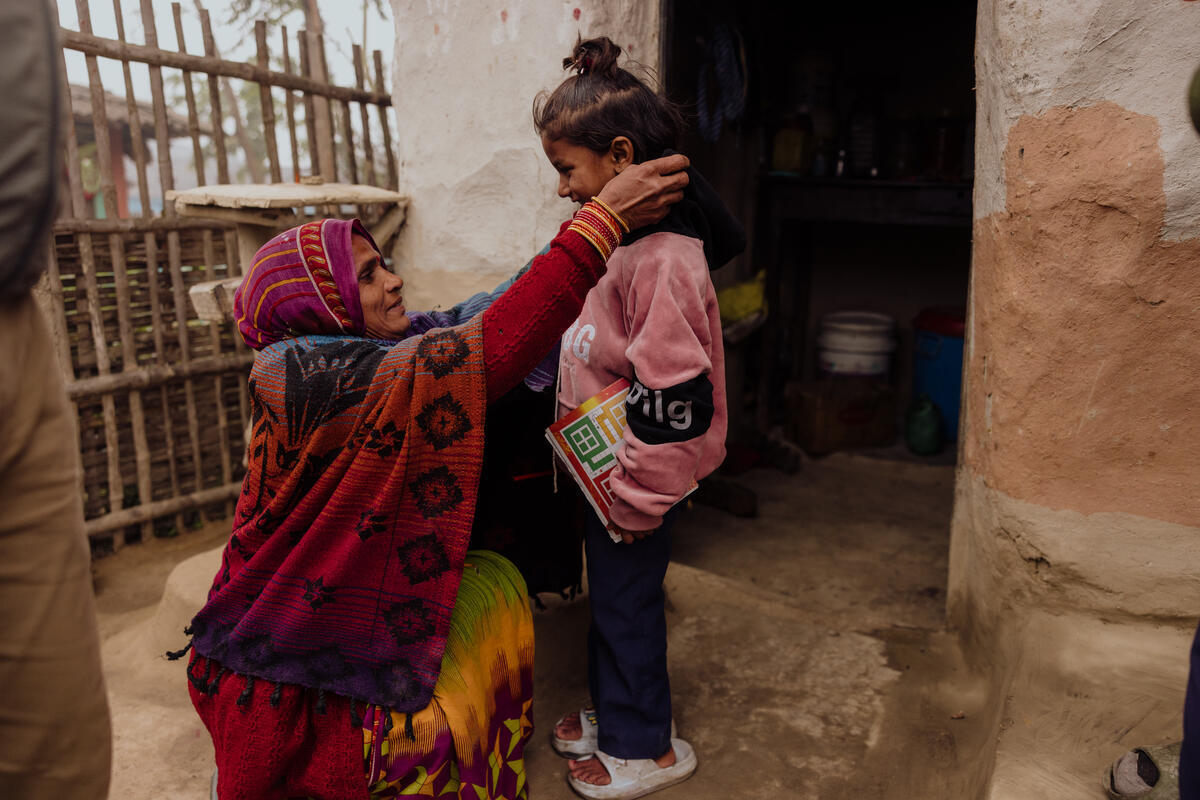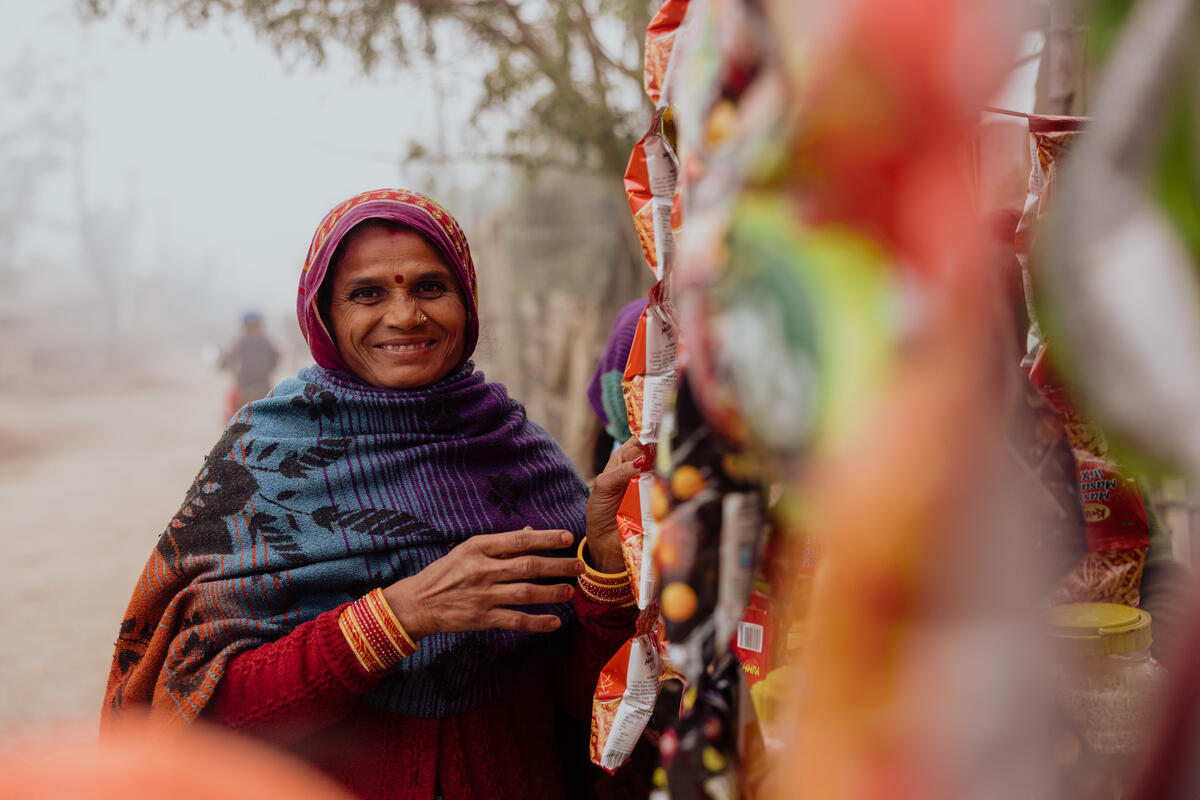An impossible choice: Rita's story

Each night, when one of her girls was hungry, Rita would sing a heartbreaking lullaby to keep the pangs of hunger at bay:
‘Baby sleep, today we do not have enough. ‘Sleep today. Eat what we have for today. Drink water and sleep.’
Sadly, going to bed hungry wasn’t an uncommon occurrence in Rita’s household in Nepal. As food prices have soared and work has become scarce, providing enough for her children to eat has become further and further out of reach.
“When we do not have money, we get food from the shops on credit to feed our children,” explains Rita. “And then we have to pay them back later when we have money.”
Rita sacrificed working outside of the home so that she could look after her youngest children while her husband worked across the border in India. But it wasn’t enough. And it reached a breaking point when Rita realised she simply could not afford to keep her girls in school and fed. There had to be another sacrifice.
Hunger is forcing countless parents around the world to make impossible choices. For Rita, it was a decision she never thought she’d have to make: who gets to eat, who gets to go to school and who has to work.
“As a Mother, I have to endure the hardship for my children,” says Rita. “Parents have to bear the pain.”

She didn’t want to do it, but Rita decided to send two of her older daughters away – one to be married and the other to work – while one of her younger daughters, Chandrika, would have to stop school in order to help at home, so that Rita could go out and work. This eased the burden on the family but the decision broke Rita’s heart. As a mother of six girls, she has always valued the importance of education as a tool to help her daughters succeed in a male-dominated world.
When Rita welcomed six daughters into the world, she was overwhelmed with joy, but not blind to the society she was bringing them into. In Nepal, Rita knew firsthand how sons were prized above daughters, and that providing for six daughters wouldn’t be easy. Rita prioritised living close to a school so that her daughters could easily attend as she believed education was their ticket out of poverty and into a life where they could chart their own future.
With her husband working across the border in odd jobs, his meagre earnings could barely sustain a family of eight, let alone provide two meals a day. So when food prices soared, Rita was dealt her toughest blow: the stark realisation that if she wanted her daughters to survive, she would have to sacrifice their future, which she’d worked so hard to secure.
This meant her two older daughters were denied the opportunity to complete their education, with her younger daughters likely following suit unless something drastic changed.

Thankfully, that change came in the form of two of her daughters, including Chandrika, being sponsored. With sponsorship operating in their community, it meant that her daughters received provisions like school supplies and food supplies like flour and oil, which alleviated the pressure off Rita and meant Chandrika could return to school. And Rita benefitted from sponsors’ support too - and that was the biggest game-changer of all. She was able to enroll in a World Vision livelihoods training programme focused on helping mothers generate income while being at home caring for their children. The result was that Rita was able to launch a food-stall business right outside her house - conveniently located along the path the whole community walks to school).
The extra US$10 a day that she generates from the stand enables her to take care of her younger children while still being able to send her older daughters to school. She has also enrolled in two women-led savings groups and puts away money for future schooling.
Sponsors are helping address hunger and malnutrition in Nepal through a comprehensive approach that includes improving access to food and healthcare, promoting education and creating opportunities to generate income.
“The situation is good now,” says Rita, with a sigh of relief. “We have everything. Now I can send my children to school after feeding them with food.”
You can help parents like Rita stop hunger in its tracks.